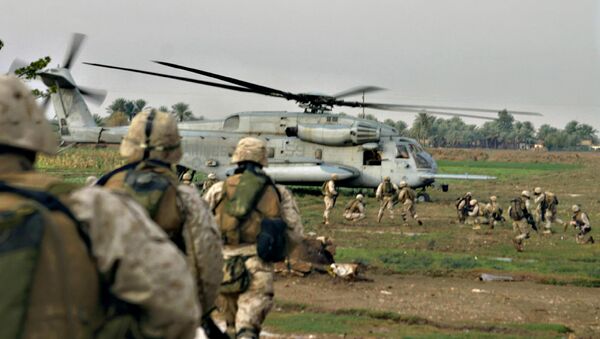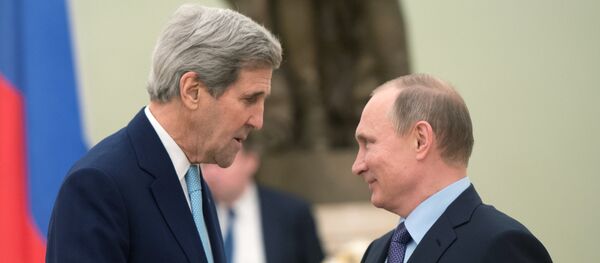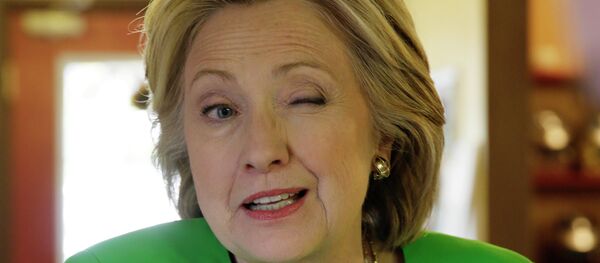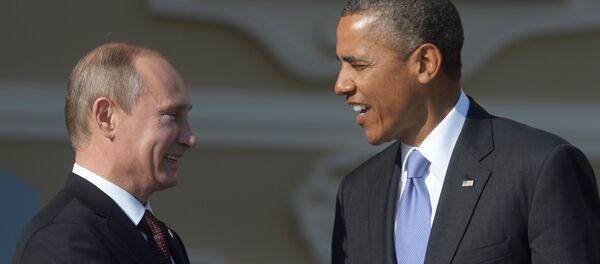Regardless of the Pentagon and US Republican congressmen's opposition, the Obama administration has taken some steps toward teaming up with Russia in Syria.
Commenting on US-Russian bilateral talks on Syria which were held on July 15-16, Russian Foreign Minister Sergei Lavrov stressed that both sides realized they need each other to address security threats in the region.
"In contrast with previous meetings, when we used to list problems in our relations…this time we have agreed to develop a road map consisting of small but practical steps aimed at rectifying a rather unhealthy state of affairs in our bilateral cooperation," Lavrov told a press conference on Friday.
"The United States is running out of options in Syria, and the Obama administration is becoming increasingly desperate. That was the broad assessment from the White House's harshest critics on Syria policy upon news that Washington is willing to offer another quid pro quo to Moscow," Daniel R. DePetris, an analyst at geostrategic consulting firm Wikistrat, Inc., writes in his article for the National Interest.
The analyst remarks that the news was first broken by Josh Rogin of the Washington Post. The journalist was given a working proposal entitled "Terms of Reference for the Joint Implementation Group" by an unnamed source that shed some light on the possibility of closer interaction between US and Russian military forces in Syria.
"The following is designed to allow Russia and the US to intensify joint and mutual efforts to bring about the destruction of al-Nusra Front and Daesh in the context of a strengthened COH [Cessation of Hostilities] with all COH parties adhering to COH terms. To this end, Russia and the US reconfirm their commitment to intensifying support and assistance to regional allies to help them prevent the flow of fighters, weapons, or financial support to UN-designated terrorist groups across the Syrian border," it reads.
The establishing of the JIG would allow the parties to coordinate their airstrikes and share intelligence. On the other hand, the joint US-Russian group would monitor the Syrian Arab Army's (SAA) military operations, and ban SAA activities in specified "designated areas," according to the document.
"The steps outlined above are intended as steps toward a more comprehensive understanding between the US and Russia, with a target date of July 31, 2016," the document says.
On June 30, Rogin reported that the offer aimed at increasing Russo-American military cooperation in Syria had been sent by the Obama administration to Moscow.
Following the Rogin exposure, US Department of State spokesperson John Kirby told Sputnik that the State Department "will not speak to the details of any ongoing internal or diplomatic conversations" with Russia.
"There is very little reason why the United States would not at least attempt to reach out to the Russians. Whether we like the way Moscow has conducted its Syria campaign or not, the fact remains that the Russians at this point in the conflict have more leverage with the Assad regime than the United States ever had," DePetris underscores, responding to those criticizing Washington's latest effort.
"Vladimir Putin has been asking President Obama for a more extensive discussion on the counterterrorism issue in Syria for at least a year… Ignoring Moscow certainly hasn't resulted in much progress," the analyst stresses.




